1. “Cowabunga” (1950s–1990s)
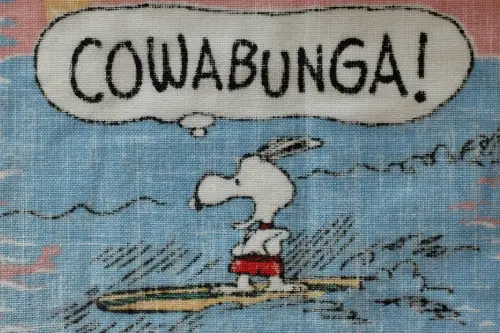
Originally popularized by surfers in the 1950s, according to the Collins Dictionary, “cowabunga” became a staple for kids thanks to TV and cartoons. The term first appeared on The Howdy Doody Show, where the character Chief Thunderthud used it as an exclamation. By the ’60s, surfers adopted it to express excitement, cementing its place in youth slang. The word saw a huge revival in the late ’80s and early ’90s thanks to the Teenage Mutant Ninja Turtles, who used it as their signature battle cry.
For kids growing up in the ’90s, “cowabunga” was the ultimate way to express joy or triumph. It was shouted when landing a skateboard trick, winning a video game, or just having a good time. The word became so tied to the Ninja Turtles that it almost feels cartoonish now, which is likely why it faded out. Though it’s no longer part of everyday vocabulary, it still brings back memories of Saturday morning cartoons and the golden age of surf culture.
2. “Grody” (1980s)
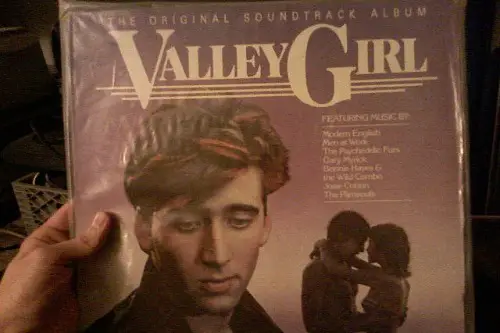
If you grew up in the ’80s, you definitely called something “grody” when it was totally disgusting, the Merriam-Webster dictionary explains. This word, short for “grotesque,” was a go-to for describing anything repulsive, from cafeteria food to a sweaty gym shirt. It was often paired with “to the max” for extra emphasis, as in “That pizza was grody to the max!” While it’s mostly vanished from everyday speech, it perfectly captures the over-the-top expressiveness of ’80s slang.
“Grody” gained popularity thanks to the Valley Girl trend, which exaggerated the way some California teens spoke. The 1982 movie Valley Girl and songs like Frank Zappa’s “Valley Girl” helped cement the term in pop culture. It also popped up in TV shows and movies of the era, making it a favorite among kids trying to sound cool. Even though it’s rarely used today, it remains a nostalgic throwback to one of the most distinctive slang eras in American history.
3. “Gag Me With a Spoon” (1980s)
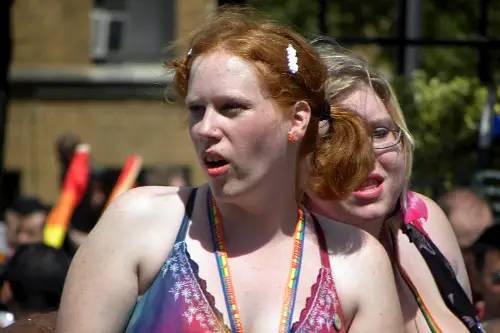
This phrase was another gem from the Valley Girl era, used to express extreme disgust, Yahoo explains. If something was gross, annoying, or just plain awful, an ’80s kid might roll their eyes and say, “Gag me with a spoon!” It was often said in a dramatic, sarcastic tone, making it a favorite for teens trying to sound extra exasperated. The phrase became widely recognized thanks to pop culture, especially in movies and TV shows that parodied the Valley Girl accent.
Though it originated in California, it spread across the country thanks to media exposure. The exaggerated way it was said made it easy to mock, which led to its eventual decline. By the early ’90s, it had mostly disappeared, surviving only in nostalgic throwbacks. Even though no one really says it anymore, it perfectly represents the dramatic, over-the-top slang of the ’80s.
4. “Booyah” (1990s–2000s)
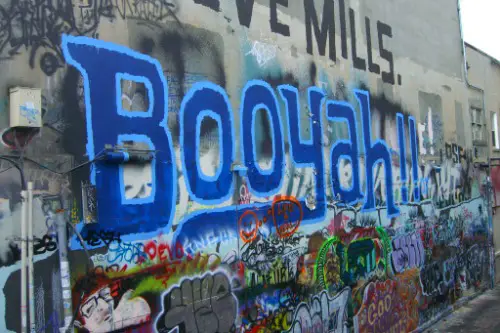
If you needed a way to celebrate a big win in the ’90s or early 2000s, “booyah” was your word. It was used to show excitement, confidence, or triumph, often after a great play in sports or a well-timed comeback, the Merriam-Webster dictionary explains. ESPN sportscaster Stuart Scott helped make it famous by using it frequently in his commentary. The word had a bold, energetic feel, making it perfect for hyping up a big moment.
Beyond sports, “booyah” was used by kids and teens to celebrate personal victories. Whether it was acing a test, leveling up in a video game, or just proving someone wrong, shouting “booyah!” made it feel even better. Over time, it became overused and eventually faded from popular speech. While it’s rare to hear today, it still brings back memories of an era when everything was about attitude and energy.
5. “Rad” (1970s–1990s)
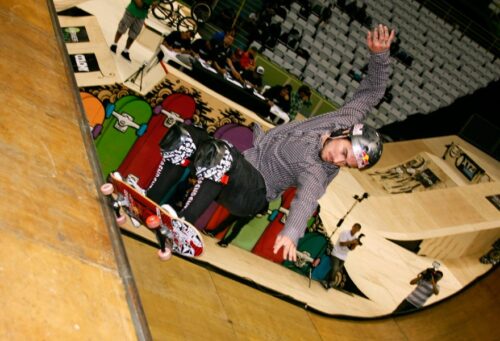
Short for “radical,” this word was one of the most popular ways to say something was awesome, according to Britannica. It first gained traction in the 1970s, especially in skateboarding and surfing communities. By the ’80s, it had gone mainstream, showing up in movies, TV shows, and everyday conversations. Saying something was “totally rad” meant it was the coolest thing ever, from a new skateboard trick to a great party.
The word stuck around into the early ’90s before eventually losing steam. Unlike other slang terms from the era, “rad” still pops up occasionally, though usually in a nostalgic or ironic way. It had a strong association with California youth culture, which helped it spread nationwide. Even though newer words have replaced it, “rad” remains one of the most iconic slang words of its time.
6. “Hella” (1990s–2000s)
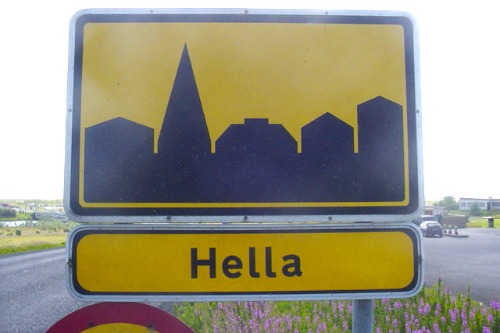
If you grew up on the West Coast in the ’90s or early 2000s, you probably used “hella” all the time. It was a way to say “very” or “a lot,” as in “That test was hella hard” or “I’m hella tired.” Originating in Northern California, the term spread thanks to music, movies, and general teen culture. Though it was mostly regional at first, it eventually made its way into slang across the country.
By the early 2000s, “hella” had become a defining part of youth speech, especially among skaters and alternative kids. The word was often met with eye rolls from older generations, which only made teens love it more. While it’s still used in some places, it’s no longer the go-to intensifier it once was. But for those who grew up saying it, “hella” will always be a reminder of a time when everything needed just a little extra emphasis.
7. “Talk to the Hand” (1990s)
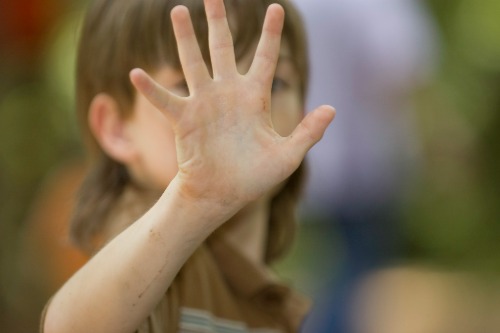
In the ’90s, if you wanted to shut someone down without saying much, you simply said, “Talk to the hand.” Usually delivered with a dismissive palm in their face, this phrase meant, “I’m not listening to you.” It became popular thanks to TV and movies, especially in the era of sassy comebacks and attitude-filled dialogue. While it was mostly used playfully, it could also be a serious way to brush someone off.
This phrase perfectly captured the sarcastic, don’t-care energy of the ’90s. It was used by kids and teens who wanted to sound cool and in control, often in response to annoying parents or teachers. Like many slang phrases, it became overused, and by the 2000s, it had mostly disappeared. But if you ever hear someone jokingly say it today, you know they grew up in the golden age of attitude.
8. “Wazzup?” (1999–2000s)

This goofy way of saying “What’s up?” exploded into pop culture thanks to a Budweiser commercial in 1999. The ad featured a group of friends repeatedly shouting “Wazzup?” in an exaggerated, drawn-out way. Almost overnight, it became a nationwide catchphrase, used by kids, teens, and even adults who wanted to be in on the joke. It was one of the first slang phrases to spread virally before social media even existed.
The phrase was so popular that it showed up in movies, TV shows, and even everyday conversations. People would answer their phones with it, yell it across hallways, and drag it out as long as possible for comedic effect. But like many catchphrases, it burned out quickly, becoming more of a punchline than a cool way to greet someone. While it’s mostly a relic of the early 2000s, hearing it still brings back memories of a time when simple jokes could take over the world.
9. “Bogus” (1980s–1990s)
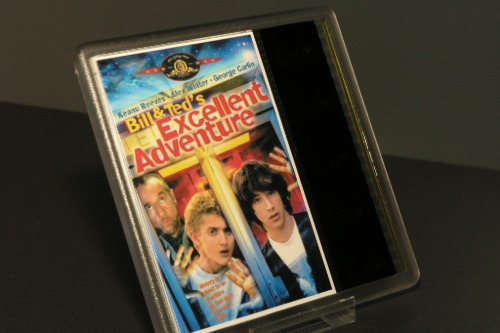
If something was unfair, disappointing, or just plain wrong, ’80s and ’90s kids called it “bogus.” The word originally meant “fake” but evolved to describe anything that felt like a rip-off. If a teacher gave a surprise quiz, you’d hear a chorus of “That’s bogus!” echo through the classroom. It became especially popular thanks to the 1989 movie Bill & Ted’s Excellent Adventure, where the characters used it frequently.
“Bogus” was a perfect slang word because it covered so many situations. Whether you missed a concert, got grounded, or lost a game because of a bad call, you could always complain that it was totally bogus. The word started to fade in the 2000s, replaced by newer slang for unfair situations. But for anyone who grew up using it, “bogus” still feels like the best way to describe a major letdown.
10. “Psych!” (1980s–1990s)
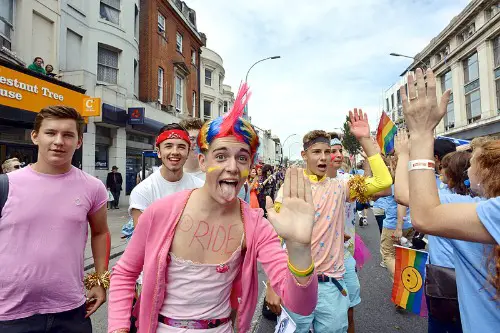
If you ever tricked someone and immediately took it back, you probably followed up with “Psych!” This slang term was used to fake someone out, often by saying something shocking or exciting and then instantly retracting it. A classic example would be handing someone a piece of candy, pulling it away at the last second, and saying, “Psych!” It was a simple but effective way to mess with your friends.
The word became so popular that it was used in everyday conversations, TV shows, and even product marketing. It was the ultimate way to pull off a harmless prank, especially among kids who loved playing jokes on each other. By the late ’90s, though, it had mostly disappeared, as new slang terms took over. But for those who remember, “Psych!” will always bring back memories of playground pranks and sibling rivalries.


